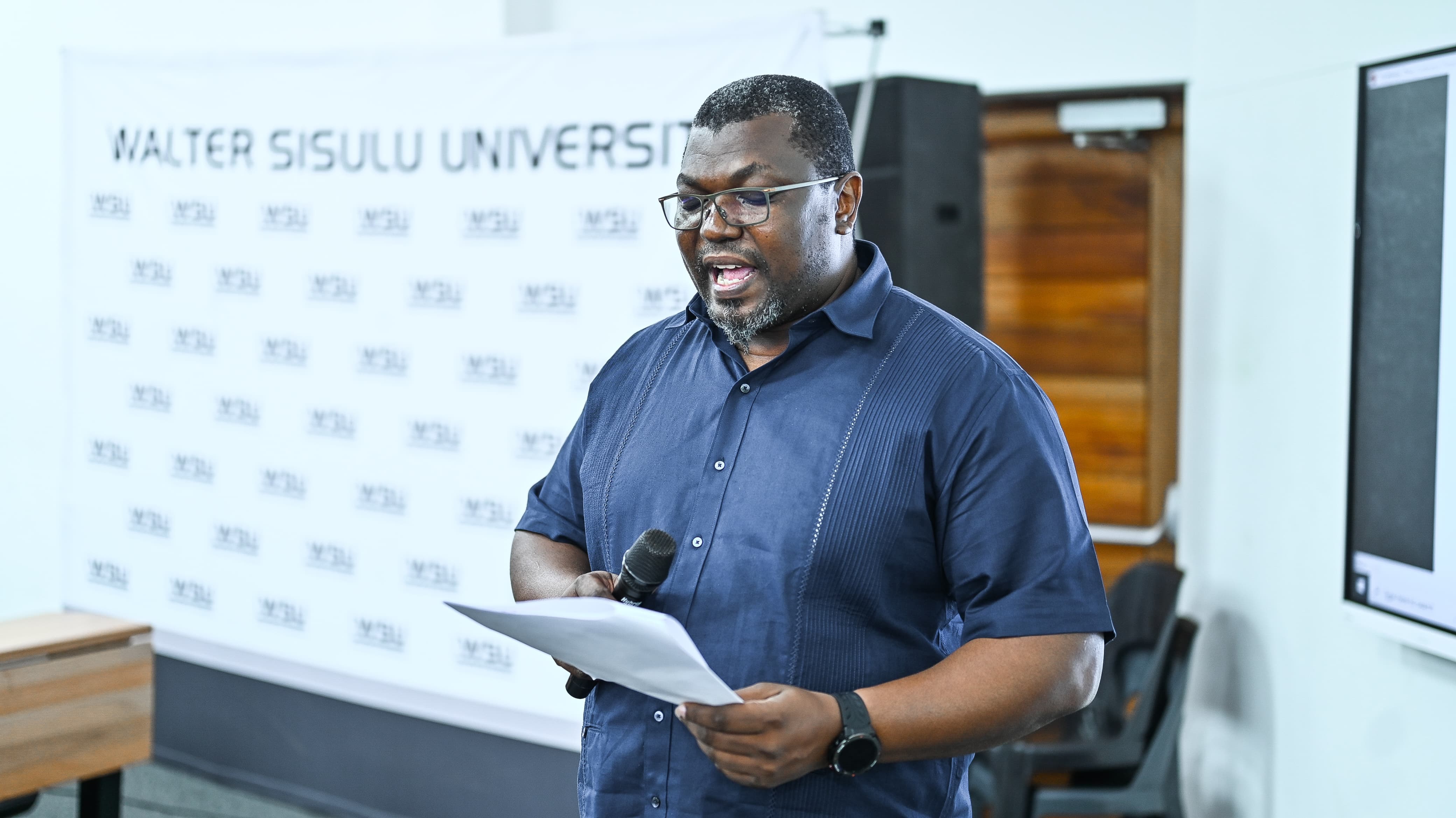SIYATHWASA THINA: WSU FINE ARTS LECTURER SHOWCASES XHOSA HEALING THROUGH ART

Walter Sisulu University (WSU)’s Fine Arts lecturer, Pumlani Mbanya drew the audience into a powerful reflection on how art can serve as both a vessel and a voice for indigenous knowledge on day three of the SA Humanities Deans Association (SAHUDA) conference 2025, underway in Mthatha.
Presenting his paper titled “Siyathwasa Thina: Preserving Xhosa Traditional Healing through Artistic Practice, Autoethnography, and Global Perspectives,” Mbanya shared how his research blends artistic practice, spirituality, and scholarship to preserve and celebrate Xhosa traditional healing.
His work explores how artistic practice and autoethnography can serve as tools for sustaining and communicating Xhosa traditional healing, with a particular focus on ukuthwasa, the initiation process through which healers, or amagqirha, are trained.
He explained that ukuthwasa is not merely a ritual but a transformative pedagogy of the spirit that embodies knowledge, identity, and healing.
“Traditional healing once formed the foundation of community health, uniting body, spirit, and environment in continuous dialogue,” said Mbanya.
However, Mbanya pointed out that colonial and apartheid systems disrupted these knowledge systems through acts such as the 1895 Suppression of Witchcraft Act and the 1913 Native Land Act, which both criminalised indigenous healing and limited access to medicinal plants.
“Despite apartheid systemic suppression, these practices persisted as acts of cultural resistance and resilience,” he said.
Through his artistic exhibition Vumani Siyavuma, Mbanya transformed healing rituals into visual and performative art, positioning creativity as a form of scholarship.
His installations and performances engaged ancestral symbolism and spiritual embodiment, creating what he calls an epistemic medium, which is art that archives living memory and communicates knowledge that transcends language.
Mbanya further called for the respectful documentation of indigenous knowledge and the inclusion of traditional healers within academic and healthcare systems.
“Preserving indigenous healing requires both intellectual recognition and creative transformation. Art does not only archive memory, but it also sustains living heritage,” said Mbanya.
His presentation resonated strongly with the conference’s broader theme of reimagining African knowledge systems within global scholarly conversations.
The conference ends today.
By Anita Roji
